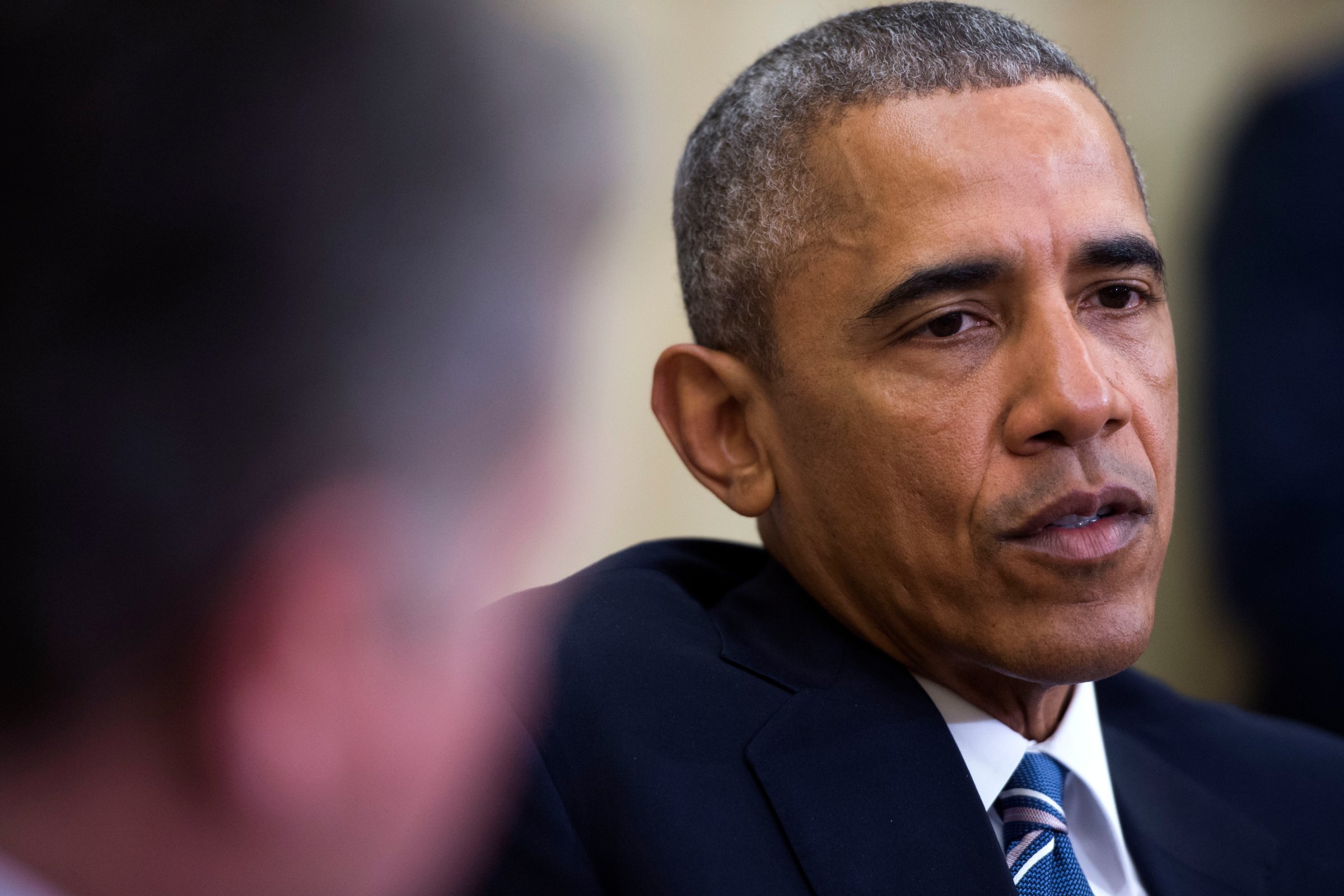
Last week, as the Obama administration announced that it had resettled only 114 Syrian refugees during the month of February, the chaos and consequences flowing from the failure to address the Syrian refugee crisis continued to mount in Europe and the Middle East. This is not just a European challenge; it is a national security issue for the U.S.
A few months ago, it appeared that the U.S. might shut the door on Syrian refugees. In the wake of the terrorist attacks in Paris—as dozens of governors deemed their states off-limits to Syrian refugees and some politicians wanted to deny entry to all Muslims—the House passed a bill that would have effectively halted the resettlement of refugees from both Syria and Iraq.
But the bill died in the Senate, and President Barack Obama’s plan to resettle 10,000 Syrians in the 12 months starting last October is intact, if not quite on track—and the effort may face further political opposition and state litigation challenges.
Yet if national security is our concern, as it should be, shutting the door on Syrian refugees is precisely the wrong approach.
Let’s dispense with the myth that the security screening process is deficient. Refugees face the most rigorous vetting of all travelers to the U.S. They undergo several rigorous interviews, including with Department of Homeland Security officers. Multiple U.S. intelligence and law enforcement agencies—including the Department of Defense and the National Counterterrorism Center—are involved in the vetting. Our government also has access to information from other countries and from Interpol, which has extensive information on stolen, false and blank passports.
Providing safe haven to long-suffering Syrian refugees doesn’t threaten our national security—quite the contrary.
All national security authorities agree that the struggle against terrorism is a battle not just of weapons, but also of ideas. And in this battle of ideas, shutting out Syrian refugees—who are among the primary victims of ISIS—amounts to unconditional surrender.
In December, a group of national security experts—including former U.S. National Security Advisors, CIA Directors, Secretaries of State, Secretaries of Defense and military leaders—sent a letter to Congress that said, in part, that hostility to Syrian refugees “feeds the narrative of ISIS that there is a war between Islam and the West.” And conversely, welcoming refugees is an effective rebuke to ISIS propaganda.
Helping Syrian refugees strengthens U.S. national security by safeguarding the stability of the key U.S. allies that border Syria. Together Jordan, Turkey and Lebanon are hosting more than 4.8 million Syrian refugees, and this challenge is straining their infrastructures. One need not have access to CIA intelligence reports to know that these strains fuel instability.
An effort by the U.S. and other countries to admit more Syrian refugees and increase humanitarian and development aid would provide critical relief to the frontline states. The current U.S. commitment of 10,000 represents about 0.2 % of the Syrian refugees hosted by frontline states, and only about 2% of those who need resettlement.
To lead by example, the U.S. should pledge to admit 100,000 Syrian refugees beyond the current ceiling for refugees from all countries, as I and other former government officials with national security and humanitarian expertise urged in September. To be sure, such a substantial increase will require an extraordinary U.S. effort, but the imperative of U.S. leadership on this issue demands no less.
The U.S. government should also should commit more resources to its own refugee processing. A new report by Human Rights First reveals that “bottlenecks, backlogs, and staffing gaps” may undermine even the modest effort to resettle 10,000 refugees. At the end of January, one third of the way through the fiscal year, the U.S. had resettled only 841 of the 10,000 refugees it has pledged to resettle. The Obama administration should fill the staffing gaps so that it can keep its commitment both to the governments in the region and vulnerable refugees.
Once the U.S. has stepped up to share more responsibility, it will be better positioned to exert moral leadership. Syria’s neighbors have blocked entry to thousands fleeing aerial bombings and terrorism, and imposed prohibitions on work and registration. These restrictions, exacerbated by insufficient aid and resettlement routes, have pushed many Syrians to make the dangerous journey to Europe. In tandem with helping these states cover the cost of hosting refugees, the U.S. should press them to respect their human rights.
Until there is an end to conflict Syria, refugees will continue to suffer. In the meantime, the U.S. can do far more save and safeguard the lives of millions of beleaguered Syrians. Sustained American leadership is essential for progress on this issue. It’s the right thing to do. It’s the smart thing to do. It’s the safe thing to do. So let’s do it.
More Must-Reads from TIME
- Donald Trump Is TIME's 2024 Person of the Year
- Why We Chose Trump as Person of the Year
- Is Intermittent Fasting Good or Bad for You?
- The 100 Must-Read Books of 2024
- The 20 Best Christmas TV Episodes
- Column: If Optimism Feels Ridiculous Now, Try Hope
- The Future of Climate Action Is Trade Policy
- Merle Bombardieri Is Helping People Make the Baby Decision
Contact us at letters@time.com